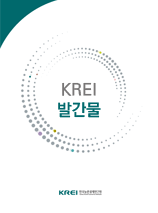
- Impacts and Implications of Korea-EU FTA to Agricultural Sector after 5 Years of Effectuation
-

-
○ In the 5th year of implementation of the Korea-EU FTA, the volume of trade of agricultural
and livestock products between two parties was reduced compared to the 4th year due to the
impact of change in domestic and overseas conditions; however, it increased compared to a
normal year before the pact went into effect.
- In the 5th year of implementation, the value of import of agricultural and livestock products
from the EU stood at USD 3.5 billion, down by 4.7% than the previous year and up by
68.2% than an average year before the effectuation.
- In the 5th year of implementation, the value of export of agricultural and livestock products
to the EU was USD 340 million, down by 1.5% than the previous year and up by 68.2%
than a normal year before the effectuation.
○ In 2015, the utilization rate of preferential tariffs for agricultural and livestock products imported
from the EU was 82.2%, while the rate for products exported to the EU was 69.5%.
- Items whose rate of utilizing FTA preferential tariffs for import is 90% or over among products
with USD 100 million of the value of import or over include pork, cheese, wine, etc.
- Items whose rate of utilizing FTA preferential tariffs for export is 90% or over among products
with USD 10 million of the value of export or over include gelatin, ramen, etc.
○ Due to reduction of tariffs for the Korea-EU FTA and decreased domestic production, the volume
of pork imported from the EU increased by 2.1% compared to the 4th year and 76.0%
compared to an average year before the effectuation.
- Although competition became intensified, including conclusion of FTAs with dairy product
exporting countries such as Australia and New Zealand, the volume of import of dairy products
in the 5th year of implementation rose by 14.9% compared to the previous year and
146.0% than a normal year before the effectuation due to an increase in the production of
dairy products in the EU and decline in prices.
- The volume of import of corn and barley increased compared to the 4th year of implementation;
with a decrease in the imports of wheat, however, the total volume of import
of grain from the EU dropped by 2.7% compared to the previous year and grew by 369.9%
compared to an average year before the effectuation.
○ Thanks to reduction of tariffs, the effect of decreasing import price was achieved in the 5th year
of implementation, including the import price of pork down by 8-17%, dairy products by
8-16% and grain by 3-28%.
○ As part of domestic measures to deal with the impact of opening the market by the Korea-EU
FTA, performance in policy was ensured, including improvement of stockbreeding productivity
and spread of eco-friendly stockbreeding.
- From 2011 to 2015, the budget of KRW 4 trillion and 838.4 billion was executed for domestic
measures to supplement the Korea-EU FTA (86.8% compared to the initial plan).
- Projects for modernizing livestock facilities contributed to improving the productivity of each
livestock type, and projects for vitalizing natural recycling agriculture and supporting livestock
manure processing facilities served spreading eco-friendly livestock production. -
목차
요약문
○ In the 5th year of implementation of the Korea-EU FTA, the volume of trade of agricultural
and livestock products between two parties was reduced compared to the 4th year due to the
impact of change in domestic and overseas conditions; however, it increased compared to a
normal year before the pact went into effect.
- In the 5th year of implementation, the value of import of agricultural and livestock products
from the EU stood at USD 3.5 billion, down by 4.7% than the previous year and up by
68.2% than an average year before the effectuation.
- In the 5th year of implementation, the value of export of agricultural and livestock products
to the EU was USD 340 million, down by 1.5% than the previous year and up by 68.2%
than a normal year before the effectuation.
○ In 2015, the utilization rate of preferential tariffs for agricultural and livestock products imported
from the EU was 82.2%, while the rate for products exported to the EU was 69.5%.
- Items whose rate of utilizing FTA preferential tariffs for import is 90% or over among products
with USD 100 million of the value of import or over include pork, cheese, wine, etc.
- Items whose rate of utilizing FTA preferential tariffs for export is 90% or over among products
with USD 10 million of the value of export or over include gelatin, ramen, etc.
○ Due to reduction of tariffs for the Korea-EU FTA and decreased domestic production, the volume
of pork imported from the EU increased by 2.1% compared to the 4th year and 76.0%
compared to an average year before the effectuation.
- Although competition became intensified, including conclusion of FTAs with dairy product
exporting countries such as Australia and New Zealand, the volume of import of dairy products
in the 5th year of implementation rose by 14.9% compared to the previous year and
146.0% than a normal year before the effectuation due to an increase in the production of
dairy products in the EU and decline in prices.
- The volume of import of corn and barley increased compared to the 4th year of implementation;
with a decrease in the imports of wheat, however, the total volume of import
of grain from the EU dropped by 2.7% compared to the previous year and grew by 369.9%
compared to an average year before the effectuation.
○ Thanks to reduction of tariffs, the effect of decreasing import price was achieved in the 5th year
of implementation, including the import price of pork down by 8-17%, dairy products by
8-16% and grain by 3-28%.
○ As part of domestic measures to deal with the impact of opening the market by the Korea-EU
FTA, performance in policy was ensured, including improvement of stockbreeding productivity
and spread of eco-friendly stockbreeding.
- From 2011 to 2015, the budget of KRW 4 trillion and 838.4 billion was executed for domestic
measures to supplement the Korea-EU FTA (86.8% compared to the initial plan).
- Projects for modernizing livestock facilities contributed to improving the productivity of each
livestock type, and projects for vitalizing natural recycling agriculture and supporting livestock
manure processing facilities served spreading eco-friendly livestock production.저자정보
저자에게 문의
구매안내
KREI의 출판물은 판매 대행사 (정부간행물판매센터)와 아래 서점에서 구입 하실 수 있습니다.
판매대행사
- (주)정부간행물판매센터http://www.gpcbooks.co.kr사이트 바로가기
- 서울특별시 중구태평로 1가 25번지
- TEL 02) 394-0337, 734-6818
- FAX 02) 394-0339
판매서점
판매서점 교보문고 http://www.kyobobook.co.kr/ 영풍문고 http://www.ypbooks.co.kr/ 알라딘 http://www.aladin.co.kr/ 활용도 정보
활용도 정보 상세정보 조회 좋아요 다운로드 스크랩 SNS공유 3398 0 7 0 0 -
- Suggestions to Promote the Hometown Love Donation System
- Gouk, Seungyong
- 2022.11.25
- KREI 이슈리포트
-
- Ten Years of Korea-U.S. FTA: focusing on agri-food trade
- Kim, Kyungphil
- 2022.06.09
- KREI 이슈리포트
-
- Impacts of Ukraine-Russia Conflict on Global Grain Prices
- Kim, Jongjin
- 2022.03.31
- KREI 이슈리포트
-
- The Impacts of the COVID-19 on the Korean Agricultural Market
- Seo, Hong-Seok
- 2020.06.05
- KREI 이슈리포트
-
- 10 Agricultural Policy Issues of Korea in 2019
- Jeong, Minkook
- 2019.01.29
- KREI 이슈리포트
-
- State of Korean and Overseas Markets for Environment-Friendly Agricultural Products and Challenges 2018
- Jeong, Hakkyun; Sung, Jaehoon; Lee, Hyeonjeong
- 2018.09.12
- KREI 이슈리포트
-
- Measures to Establish the Water-Energy-Food Nexus for Agricultural Resource Management
- Sung, Jaehoon; Cho, Wonju; Lee, Hyeonjeong
- 2018.09.05
- KREI 이슈리포트
-
- Changes in the Trade of Agricultural and Livestock Products and Implications after Seven Years from the Enforcement of the Korea-EU FTA
- Song, Woojin; Lee, Hyunkeun; Myeong, Suhwan; Yoo, Juyoung
- 2018.06.29
- KREI 이슈리포트
-
- 10 Agricultural Policy Issues of Korea in 2018
- Kim, Byoungryul
- 2018.01.22
- KREI 이슈리포트
-
- Income Changes by Type of Farm Household and Implications
- Woo, Byungjoon
- 2017.11.30
- KREI 이슈리포트
-
- Income Changes by Type of Farm Household and Implications
- Woo, Byungjoon
- 2017.11.30
- KREI 이슈리포트
-
- 10 Agricultural Policy Issues of Korea in 2019
- Jeong, Minkook
- 2019.01.29
- KREI 이슈리포트
-
- 10 Agricultural Policy Issues of Korea in 2018
- Kim, Byoungryul
- 2018.01.22
- KREI 이슈리포트
-
- Job Creation Potential for the Youth and Challenges in the Agricultural Industry
- Ma, Sangjin
- 2017.01.01
- KREI 이슈리포트
-
- Implementation Plan and Implications of International Development Cooperation Projects for Agriculture in 2017
- Heo, Jang
- 2017.04.28
- KREI 이슈리포트
-
- 2016 Production Status and Market Prospect of Eco-Friendly Agricultural Products at Home and Abroad
- Jeong, Hakkyun; Lee, Hyejin; Kim, Changgil
- 2016.11.30
- KREI 이슈리포트
-
- The Impacts of the COVID-19 on the Korean Agricultural Market
- Seo, Hong-Seok
- 2020.06.05
- KREI 이슈리포트
-
- Global Spread of Saemaul Undong for Rural Development in Developing Countries
- Heo, Jang; Lee, Yoonjung
- 2016.11.30
- KREI 이슈리포트
-
- Goals and Strategies to Reduce Greenhouse Gas Emissions in the Agriculture Sector
- Jeong, Hakkyun; Kim, Changgil
- 2015.11.03
- KREI 이슈리포트
-
- 70 Years' Achievements and New Challenges of Korean Agriculture and Rural Communities
- Song, Miryung; Moon, Hanpil; Kim, Meebok; Seong, Jooin; Lim, Jieun
- 2015.09.15
- KREI 이슈리포트
의견남기기


